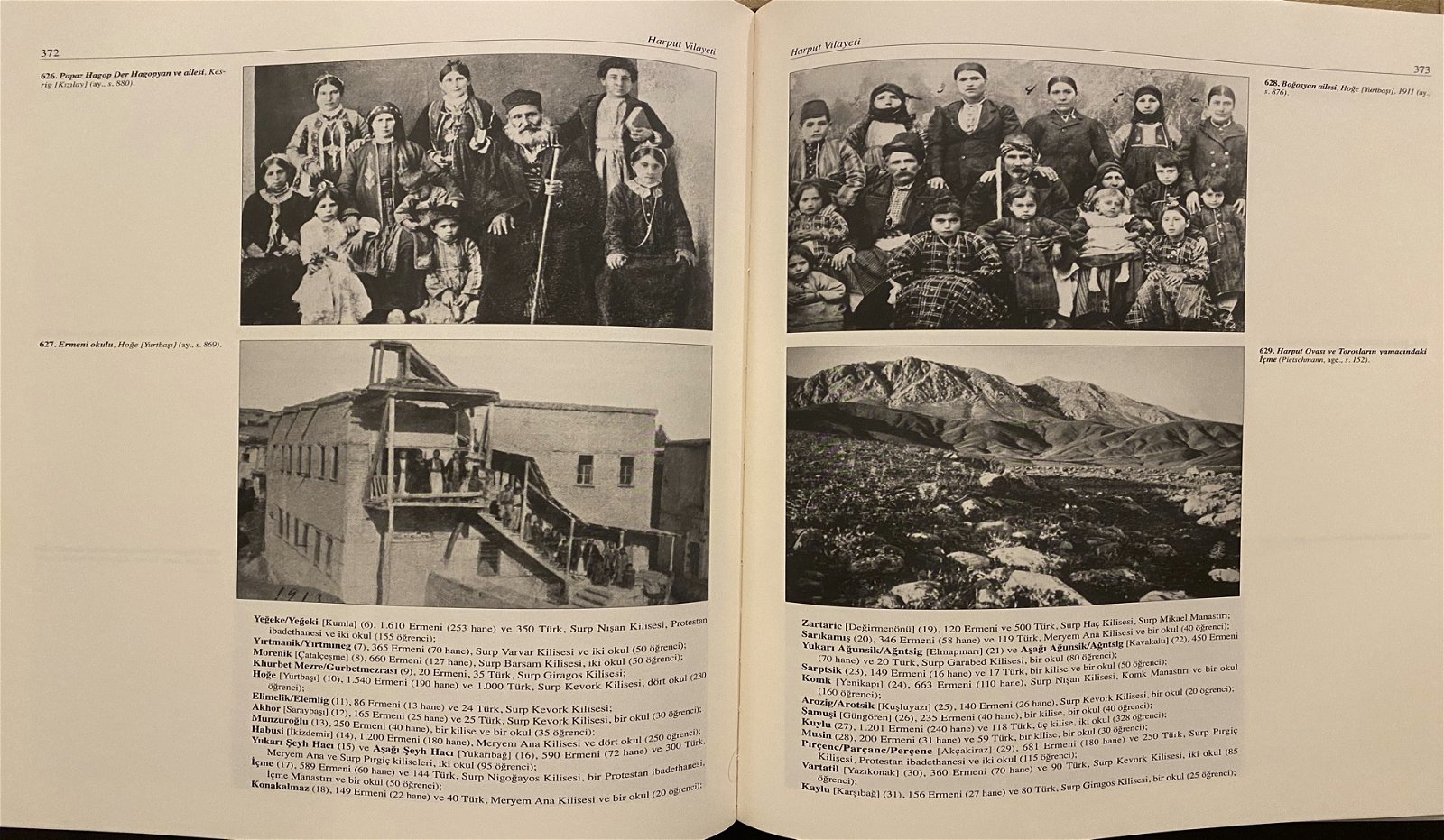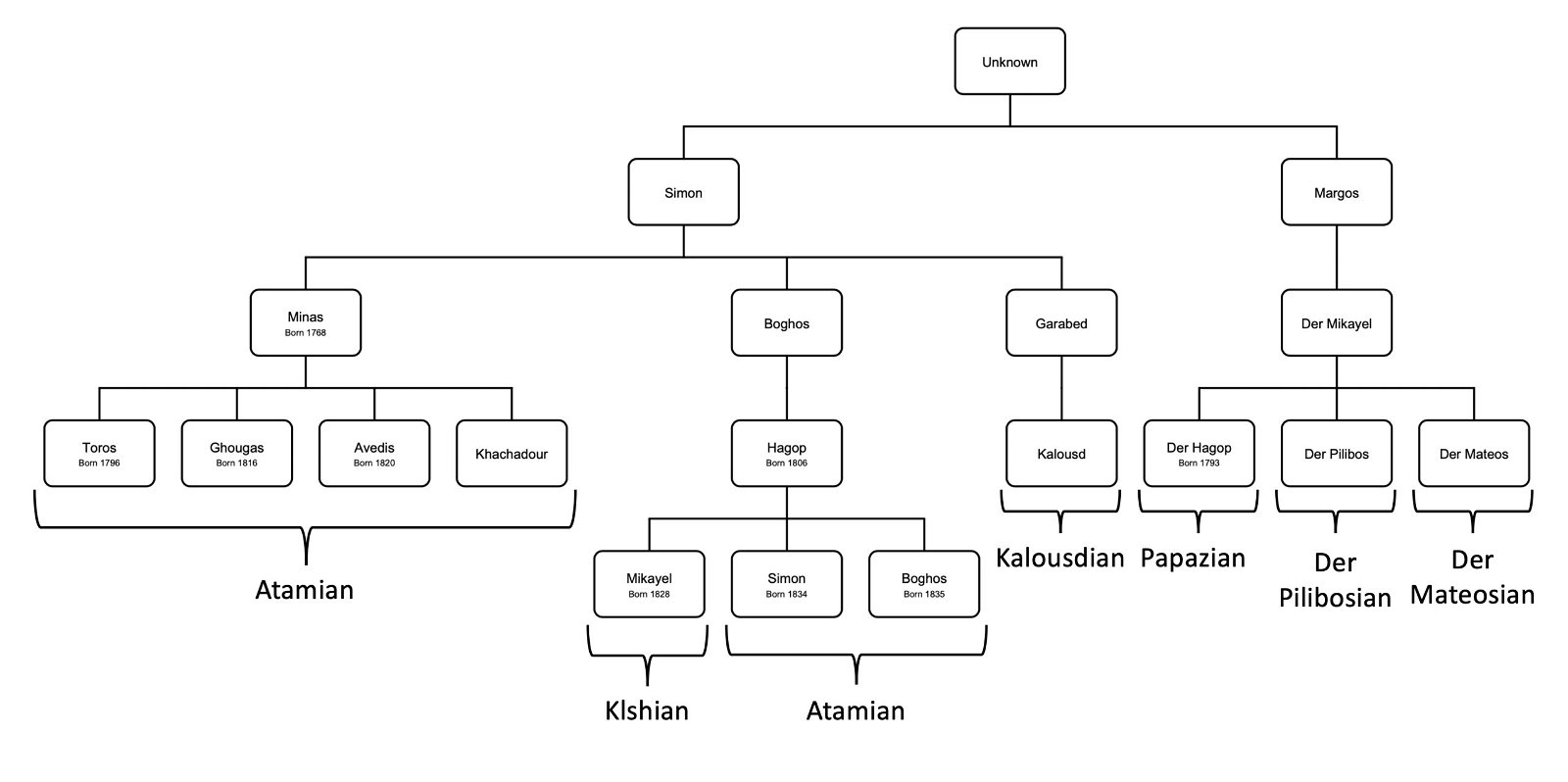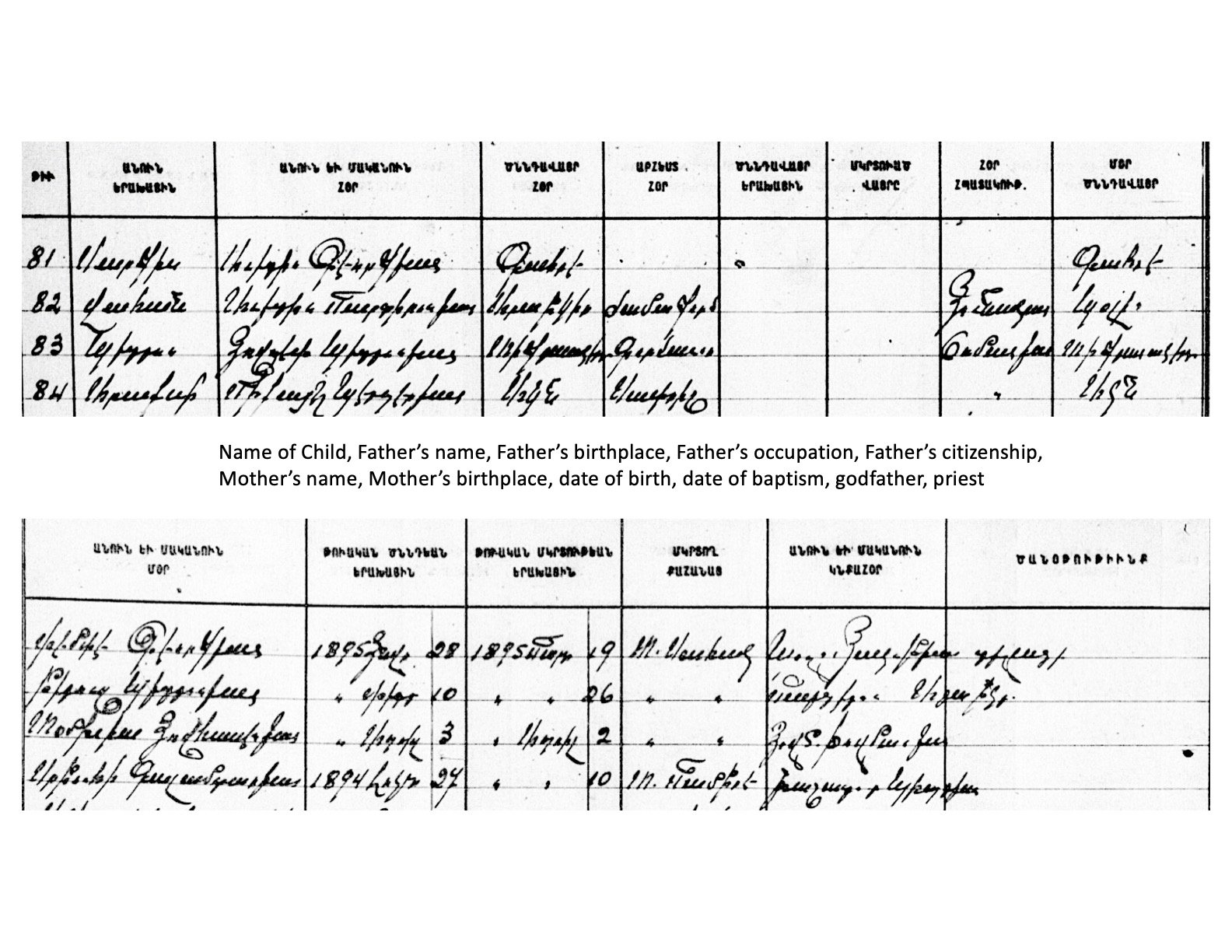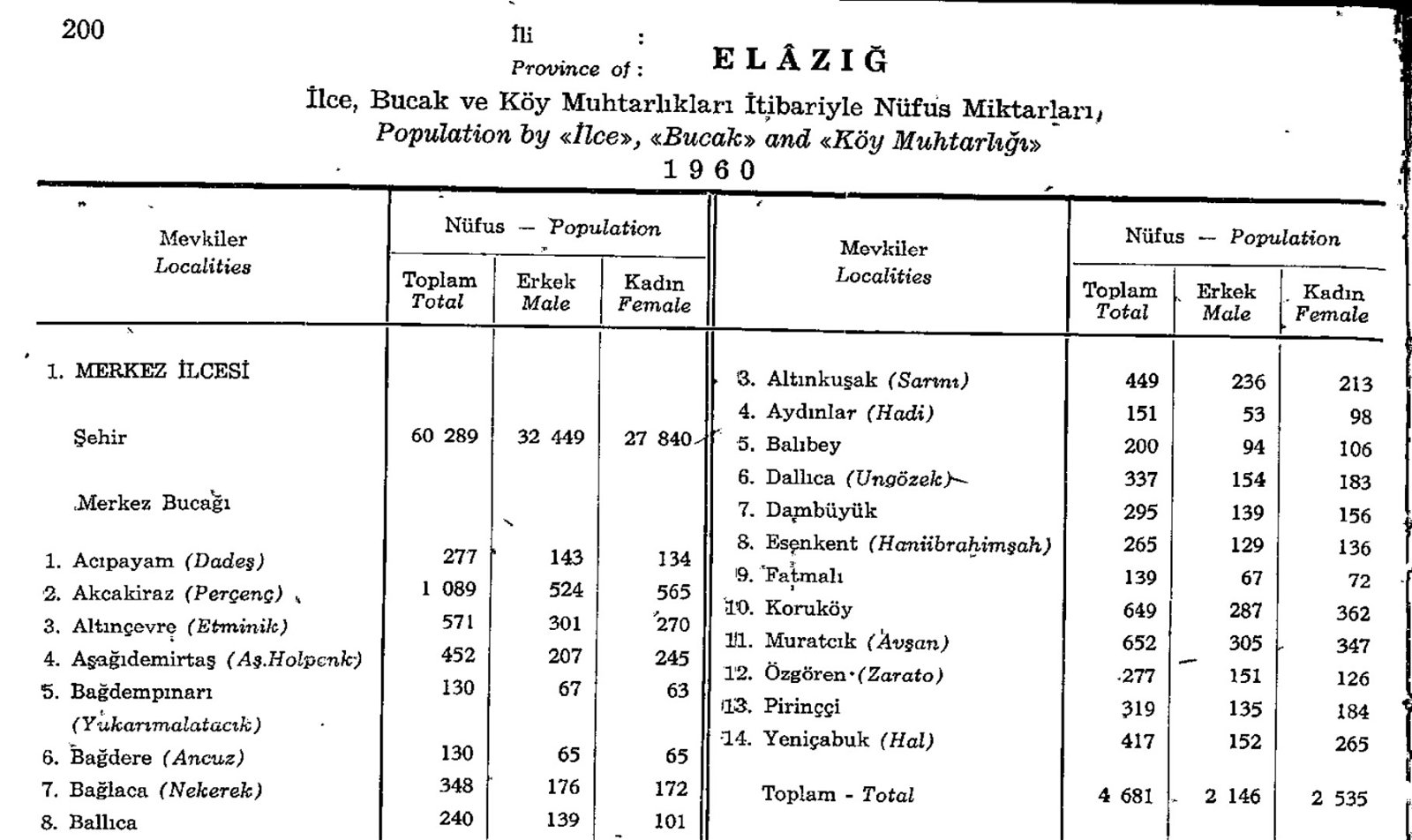
Over the last two months, I have been holding weekly Zoom presentations devoted to different aspects of Armenian genealogy. These eight sessions are meant to be foundational tutorials for beginners to experienced genealogists.
Traditionally, genealogy is not a field most Armenians gravitate towards. The prevailing view has been that no records survived the destruction of the genocide. Additionally, as time has gone on, the members of the generation most capable of answering questions regarding family ancestry have passed on. Even while alive, the traumatic experiences of the genocide often limited how much survivors were willing to discuss their lost or murdered family and the life they represented.
But this perception masks the great number of resources that are available to those seeking to learn more about their Armenian ancestry. Often, those most interested are those who have grown up separated from Armenian community life. Helping them to regain their Armenian heritage is a very tangible way to fight the great pull of assimilation.
Forty years ago, a small group of visionaries crossed the globe in an effort to microfilm Armenian church records and other resources that would be of use for just this purpose. While Armenian church leaders were not always amenable, given the affiliation of these individuals to the Mormon church, many records were nonetheless microfilmed in the ensuing years and now are available through the LDS Family History Library in Salt Lake City, Utah.

In addition, with the advent of the internet and its rapid expansion, many tools not even dreamed of back then have now become available and greatly expanded what can be accomplished in Armenian genealogical research. These resources and their uses, however, are still not widely acknowledged. In 2018, I wrote a series of articles in the Armenian Weekly that attempted to bring these resources to further light. Prior to that in 2016, a group of us most closely involved in Armenian genealogy organized a now-annual conference to discuss these advancements. Due to the pandemic, we could not hold one in 2020, and it is still unclear when the opportunity will arise for these gatherings to resume.
In the absence of these in-person conferences and to help bring this information to an expanded audience, I initiated weekly Zoom sessions to serve as foundational tutorials. There have been eight sessions thus far, and the recordings of these sessions can be accessed through my website.
Each session discusses different resources that are available, with examples of the information contained in the records. The sessions are largely organized by country, beginning with the United States. The first two sessions also contain an overview for those just starting out, an explanation of Armenian surnames and their genesis, as well as resources available for locating Armenian villages. I expect for there to be additional sessions in the future and for others with specific expertise to create their own similar videos. Announcements regarding the time of the sessions and how to gain access are posted through the Armenian Genealogy Facebook group.

List of tutorials
- Overview, Armenian surnames, resources, searching tools
- Resources for determining the current name and location of birthplace of Armenian ancestors
- Civil records and Armenian church records in the United States
- Armenian church records in Lebanon and Syria
- Armenian genealogical records in Greece
- Armenian genealogical records in Israel and Jordan
- Armenian genealogical records in Egypt
- Armenian genealogical records in Turkey



Dear Mr. Aghjayan,
Thank you for the information I will look more into the information and sources you provide. My maiden last name is Masis, and because of that and research for the historical fantasy series I am writing I am interested in Armenian genealogy.
Need help figuring out what my father’s real family name was.
It seems Apelian was his Uncle’s family name, as the two of them entered Egypt together as refugees, escaping the genocide, Egypt gave my father Bedros his uncle’s family name. They came from Kharpert (that is all I know), and my father’s family was never found. My father was 12 at the time (1915?), and he had 4 younger brothers and sisters, some under 5 yo, a mother, a father, etc.
He refused to talk about any of his family and experiences, as it had completely shut him up and traumatized him, emotionally and otherwise, for the rest of his life. We were forbidden to speak to him or ask him questions about any of it.
It is hard to believe the Turks went to such extent to abolish the Armenians…and never attempted to help to bring the families together again, to at least absolve themselves of some of their sins.
I want to know where to begin in my search for possible living relatives.
I have done the Ancestry DNA thing, and they came back to me saying I was Turkish or from Turkey. Lots of help, thank you. I wrote them back blasting them about it and they later sent some vague email about the “history of the Armenians” but never made an attempt to label me as Armenian. That is also an issue that has to be resolved with American sites such as Ancestry: their lack of knowledge and/or interest in establishing a DNA base for Armenians, separate from Turks. It’s like calling an Arab Palestinian an Israeli Jew just because the latter took over the former’s land.
How come that you have no genealogy records of ancestry in Iran or India?
Ivan Simon(ian)
For information about researching Armenians in India and Burma, see the FIBIS (Families in British India Society) Fibiwiki page Armenian
https://wiki.fibis.org/w/Armenian